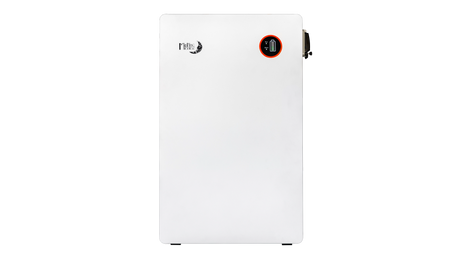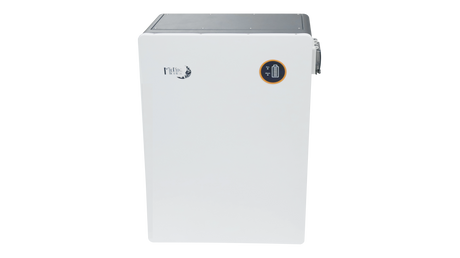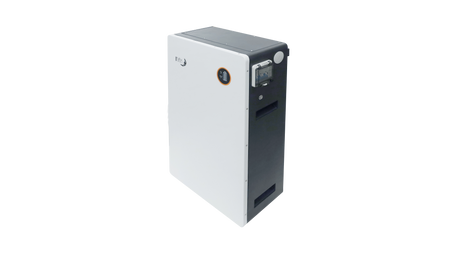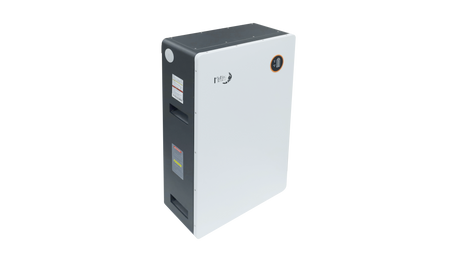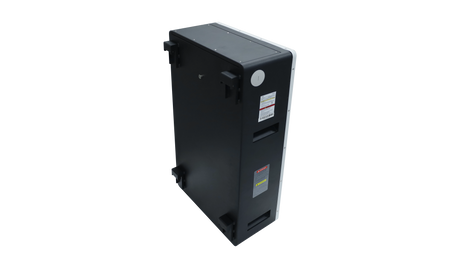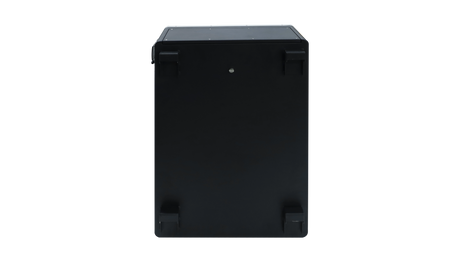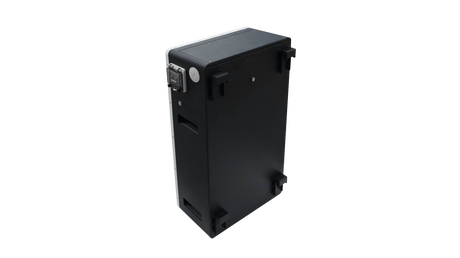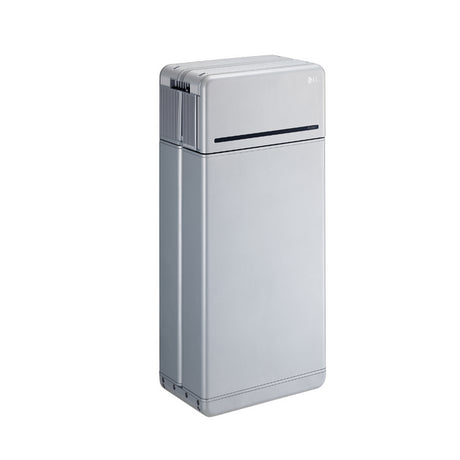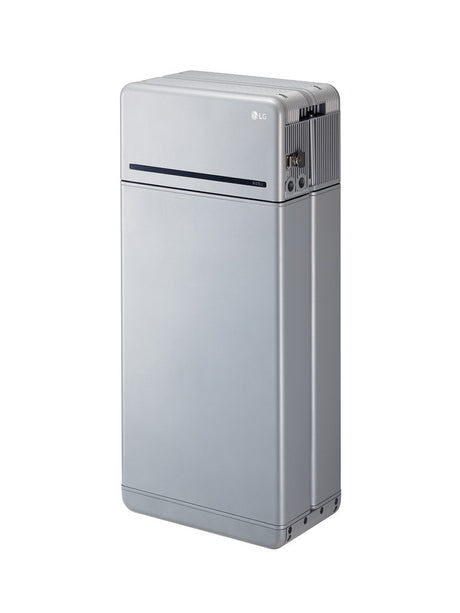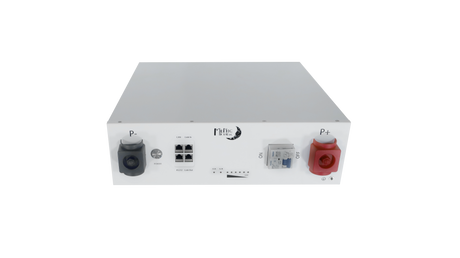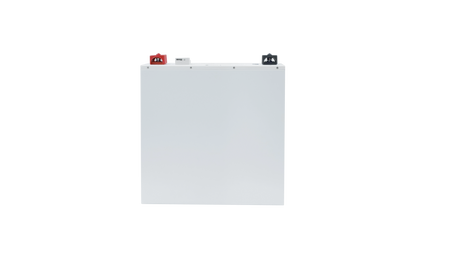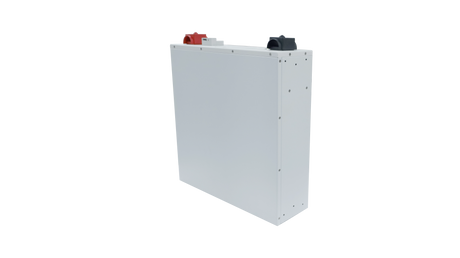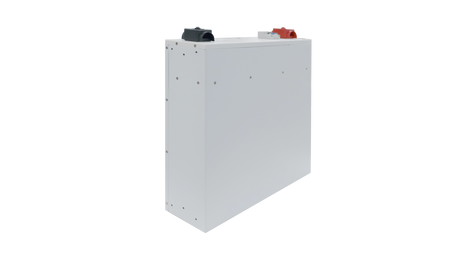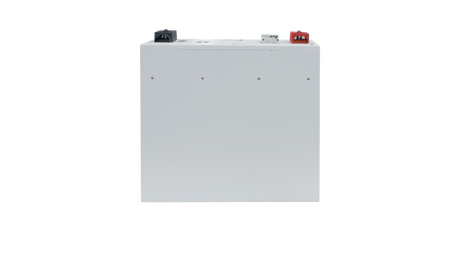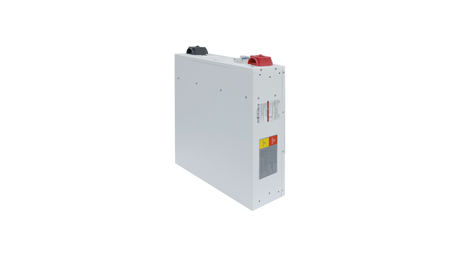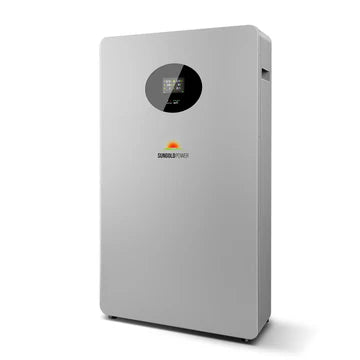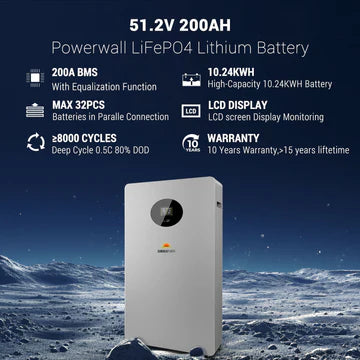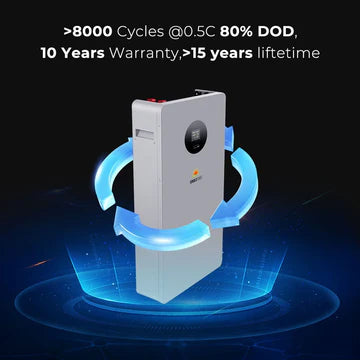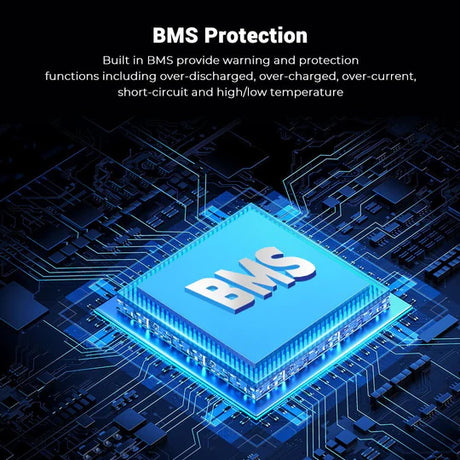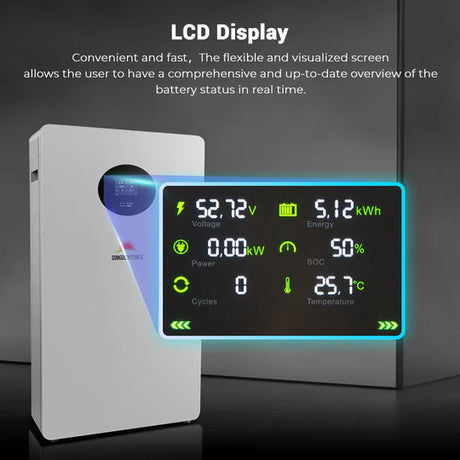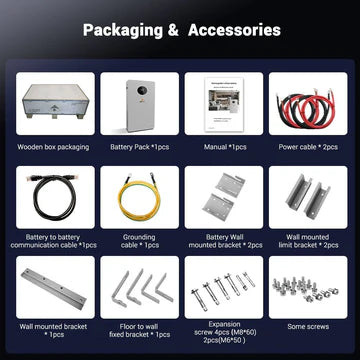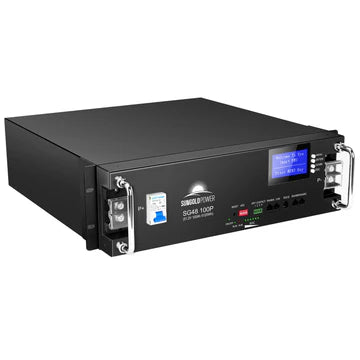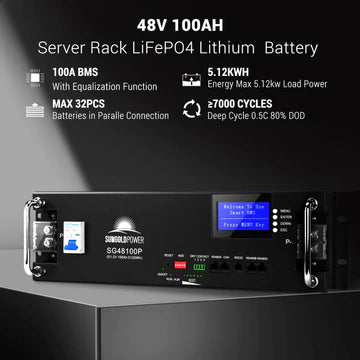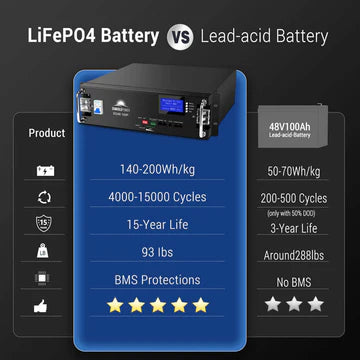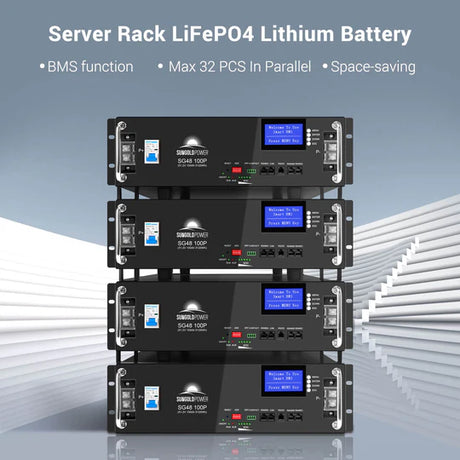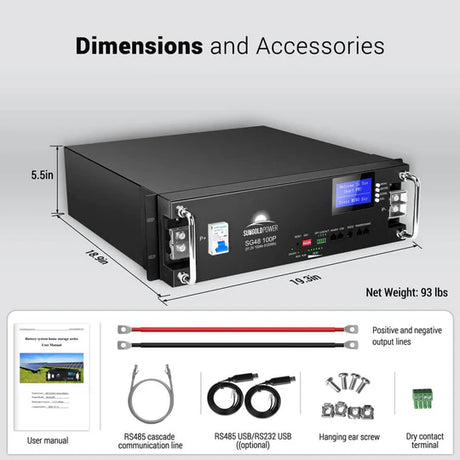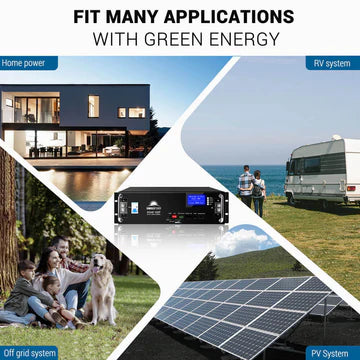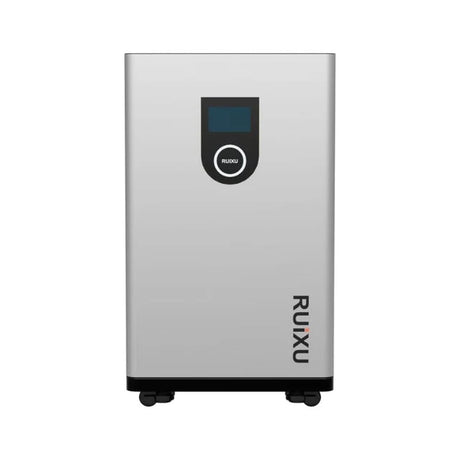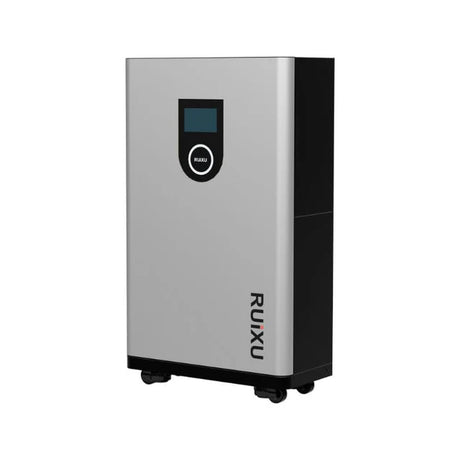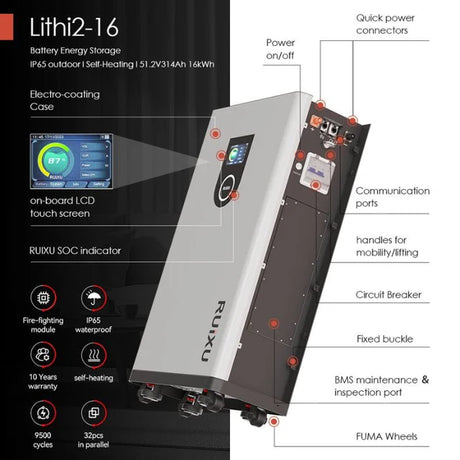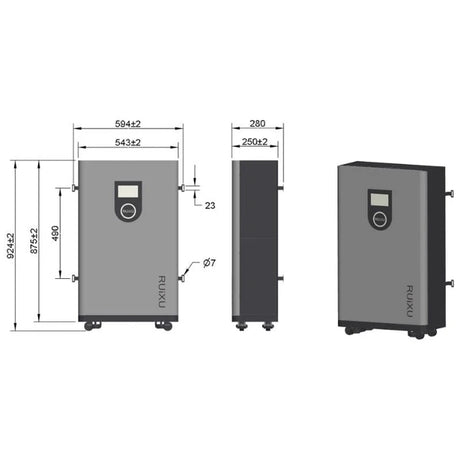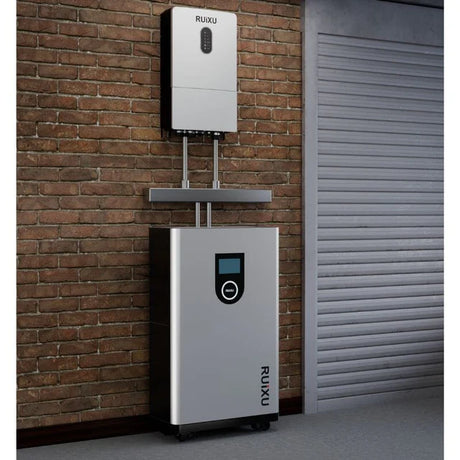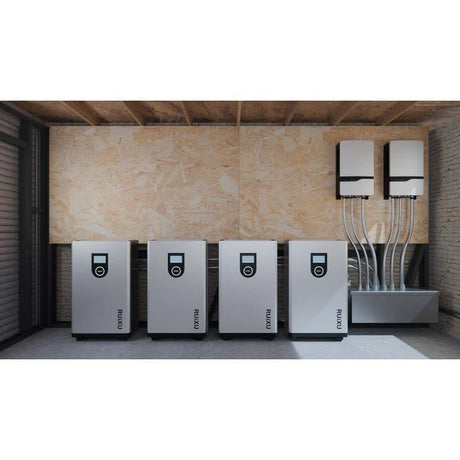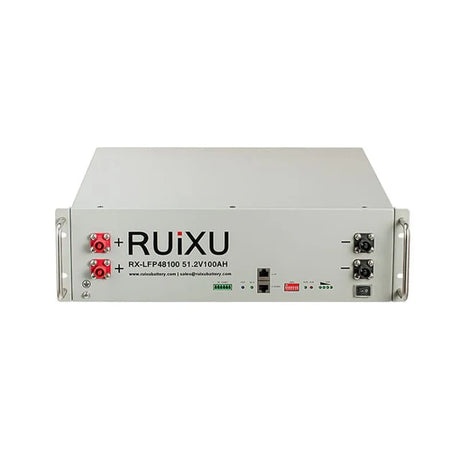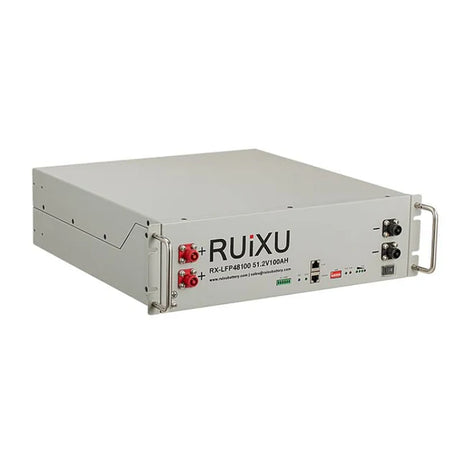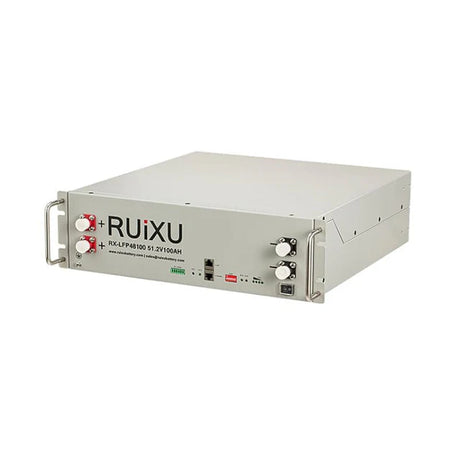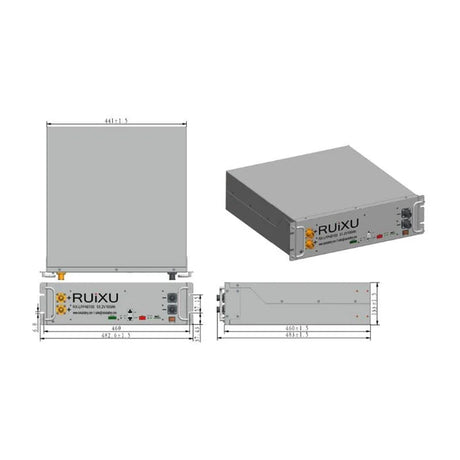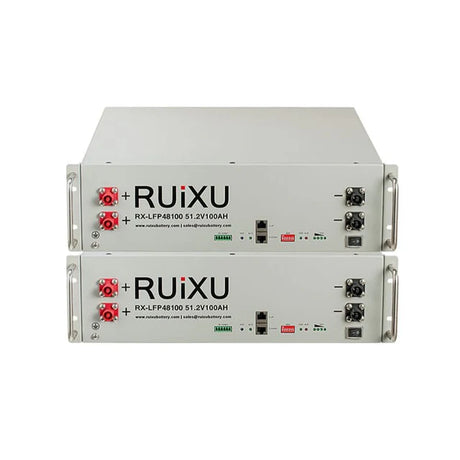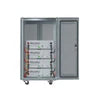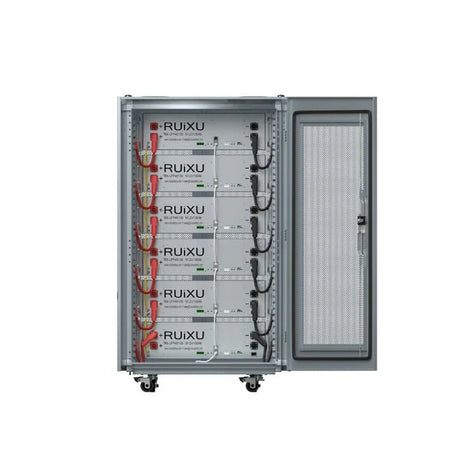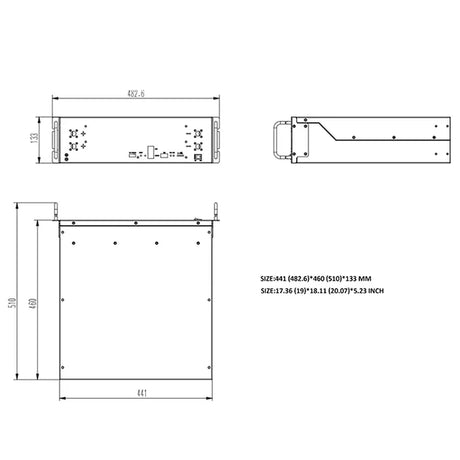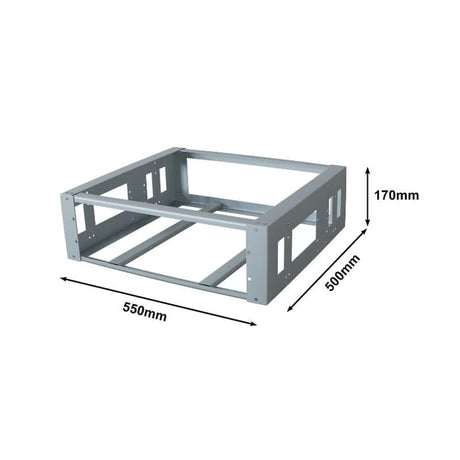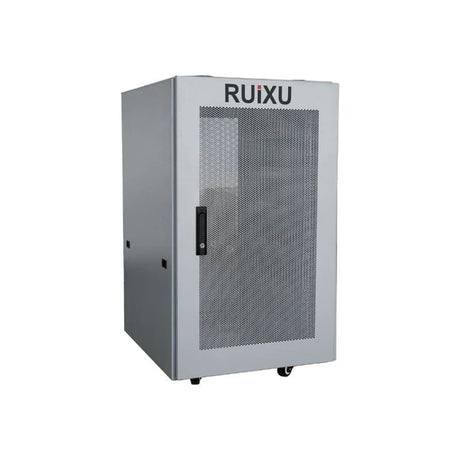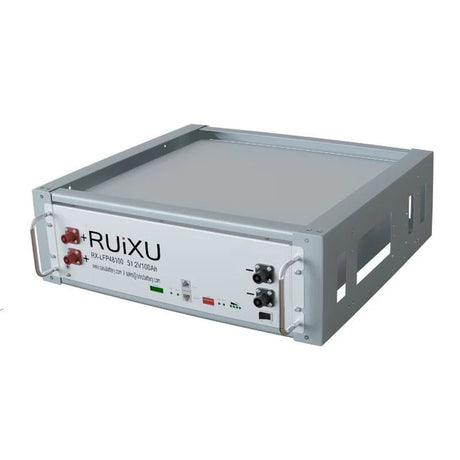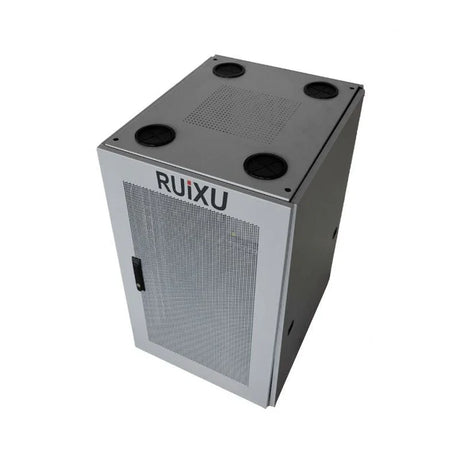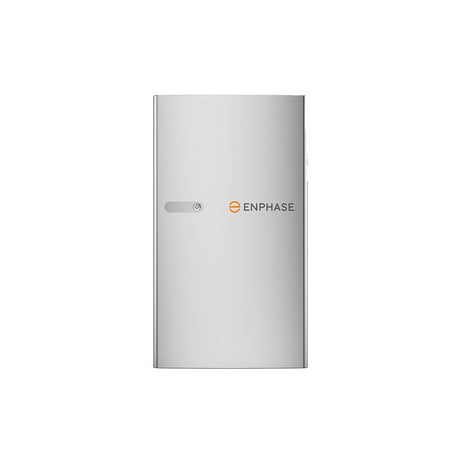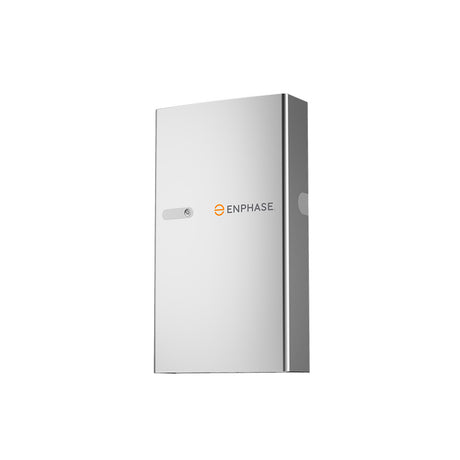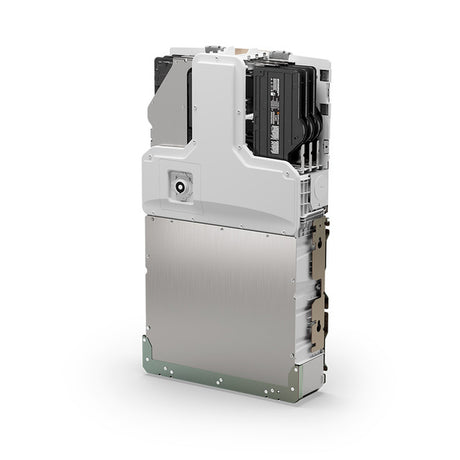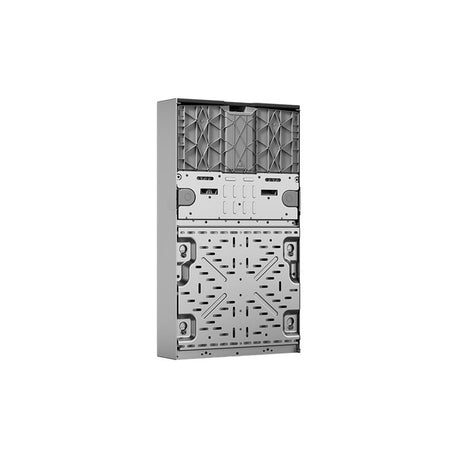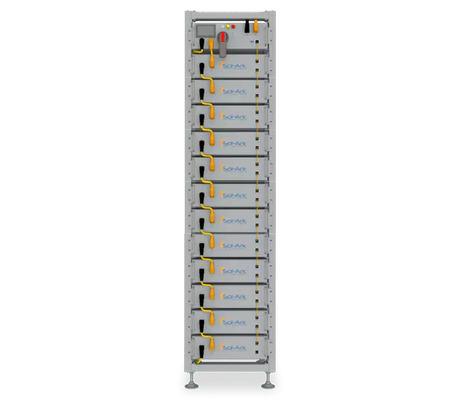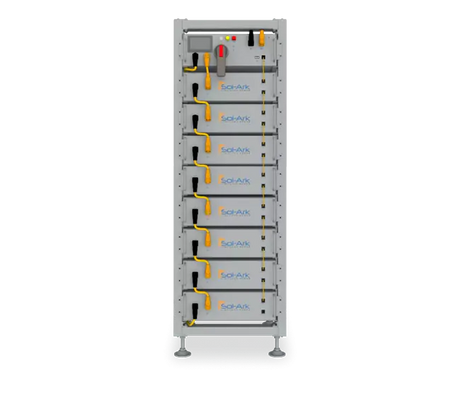- 7% off
Midnite Solar
$3,999.00$4,299.00Unit price /Unavailable - 31% off
- 15% off
Midnite Solar
$1,099.00$1,299.00Unit price /Unavailable - 29% off
SunGold
SunGold Powerwall X LITHIUM BATTERY 51.2V 200AH SG48200T
$2,250.00$3,150.00Unit price /Unavailable - 30% off
SunGold
SunGold 48V 100AH Server Rack LiFePO4 Lithium Battery SG48100P UL1973 UL9540A
$1,150.00$1,650.00Unit price /Unavailable - 26% off
- 24% off
Ruixu
RUiXU Lithi2-16 Battery Energy Storage IP65 outdoor | Self-Heating | 51.2V / 314Ah / 16kWh Capacity
$3,249.00$4,249.00Unit price /Unavailable - Up to 15% off
Ruixu
RUIXU Battery | Server Rack 3U Battery | RX-LFP48100 | UL1973 Certified | UL9540
From $1,059.00$1,249.00Unit price /Unavailable - 9% off
Sol-Ark
Sol-Ark L3 HV-60KWH 60K Commercial Indoor Energy Storage System
$30,700.00$33,000.00Unit price /UnavailableSol-Ark
Sol-Ark L3 HV-40KWH-30K Commercial Indoor Energy Storage System
$21,380.00$23,999.00Unit price /Unavailable- 12% off
Pytes
Pytes V5 20.48 kWh LiFePO4 Solar Battery + Outdoor Cabinet | Whole‑Home Energy Storage
$7,043.00$7,999.00Unit price /Unavailable - Up to 19% off
Pytes
Pytes V5 LiFePO4 Battery | 5.12kWh | 51.2V | 100Ah | Lithium Iron Phosphate
From $1,450.00$1,799.00Unit price /Unavailable
What Is a Solar Battery?
A solar battery is one of the critical components of a solar system—it stores extra energy, saving it for cloudy days and nighttime use.
Sometimes, solar panels absorb more sunlight than your home needs. However, the excess power doesn’t have to go to waste—solar energy storage allows you to save it for times when generation is lower or demand is higher.
Different Types of Solar Batteries
Lithium-ion (Li-Ion) and lithium-iron-phosphate (LFP) batteries are the most common types of solar batteries.
Let’s explore all types in detail:
- Lithium-ion batteries. Thanks to their high energy density, these are perfect for storing large amounts of solar power in a small space.
- Lithium-iron phosphate batteries. Although a variant of Li-Ion batteries, these last longer and represent a more eco-friendly solution.
- Lead-acid batteries. These are among the most affordable solar batteries and are great for providing short bursts of energy.
- Flow batteries. Due to their low energy density, these need a lot of space but are fully recyclable and require no maintenance.
- Saltwater batteries. As the name suggests, these use saltwater as their electrolyte, which makes them eco-friendly.
- Nickel-cadmium batteries. These have a long lifespan but are rarely used for home solar systems due to cadmium’s toxicity.
4 Key Benefits of Using Batteries
The benefits of using batteries for solar systems include cost savings, energy independence, protection against power outages, and environmental damage reduction.
Let’s look into them more closely:
1. Cost Savings
Going solar can help you save money on utility bills, paying off in the long run. If you add a battery to your system, you can increase your savings even further. With it, you can store extra energy during off-peak hours and use it at peak times so that you don’t have to pay higher electricity rates.
2. Energy Independence
If you install solar panels without a battery and your area experiences a power outage, the system will shut off, leaving you without electricity. However, if there’s a battery, the system will turn into a closed loop to continue to provide energy for your home. This way, you can be comfortable even during emergencies.
3. Reduced Environmental Damage
Since they store excess solar energy and allow you to maximize and extend the use of this clean energy source, solar batteries further decrease your need to rely on fossil fuels that generate harmful greenhouse gas emissions.
With this in mind, your system won’t increase your carbon footprint or create any waste. Instead, you’ll be able to produce, save, and use your own clean energy around the clock.
4. Higher Real Estate Value
Having solar panels with a battery system increases the value of your home. Potential buyers will likely appreciate the clean energy solution and the backup power that offers peace of mind. As a result, you may attract more interest and get a higher selling price.
How to Choose the Right Solar Battery for Your Needs
When choosing the right solar battery for your home, there are several factors you need to take into account, including its lifespan, capacity, efficiency, and cost.
Let’s explore them in more detail:
1. Lifespan
Each charge and drain cycle (that happens daily) shortens a solar battery's life. Simply put, after a while, its ability to hold a charge will start to decrease. How long your battery will last depends on its brand, depth of discharge, cyclic life, and the temperature of the room you store it in.
2. Capacity
Solar battery capacity is the amount of energy it can store, expressed in kilowatt-hours (kWh). That said, your choice depends on your solar needs, that is, how much energy you need to store. Luckily, solar batteries are usually stackable, which means your system can have more than one for additional capacity.
3. Efficiency
To get the most out of your battery, you need to consider its round-trip efficiency. This is the amount of energy you can use as the percentage of the power it takes to charge the battery. For example, if you feed 10 kWh into your battery and get 9 kWh out of it, that means its round-trip efficiency is 90%.
4. Cost
The prices of solar batteries vary depending on the brand and type. Some are more affordable but may have a shorter lifespan or storage capacity. Others cost more upfront but offer better performance and durability. With this in mind, you should weigh the upfront cost against the long-term benefits to make your choice.
Solar Batteries FAQ
1. What’s the best solar battery?
The best solar battery depends on your specific needs, such as budget, energy storage capacity you need, and the lifespan you want your battery to have. Some of the best-selling ones are MidNite Solar MNPowerflo16 and SunGold Powerwall X.
2. How long will a 10kW battery last?
A 10kWh battery will typically last ten to twelve hours. In case there’s a power outage when you can only rely on the stored energy, your household will most likely use up to 750W to 1000W of electricity.
3. How many batteries do you need for four solar panels?
The number of batteries you need for four solar panels depends on the panels’ capacity, your energy consumption, and the battery capacity. Generally, for grid-tied systems, one battery is usually enough. However, if you have an off-grid system, you’ll need additional storage, which means more batteries.
4. Are solar batteries weatherproof?
Solar batteries are usually designed to be weatherproof, which means they can be placed outside. However, the level of protection depends on the model. Some are completely weatherproof, while others are weather-resistant but not meant to be exposed to extreme conditions.
5. Do your solar batteries come with a warranty?
Most solar batteries come with a warranty that covers both the product and its performance over time. The length of a solar battery warranty is typically ten years, while some premium models offer up to fifteen years of warranty.
6. What happens when the battery is full?
When the battery is full, the charge controller detects it and stops the flow of electricity. This can protect your system from a number of issues, including overheating and even fire hazards.

